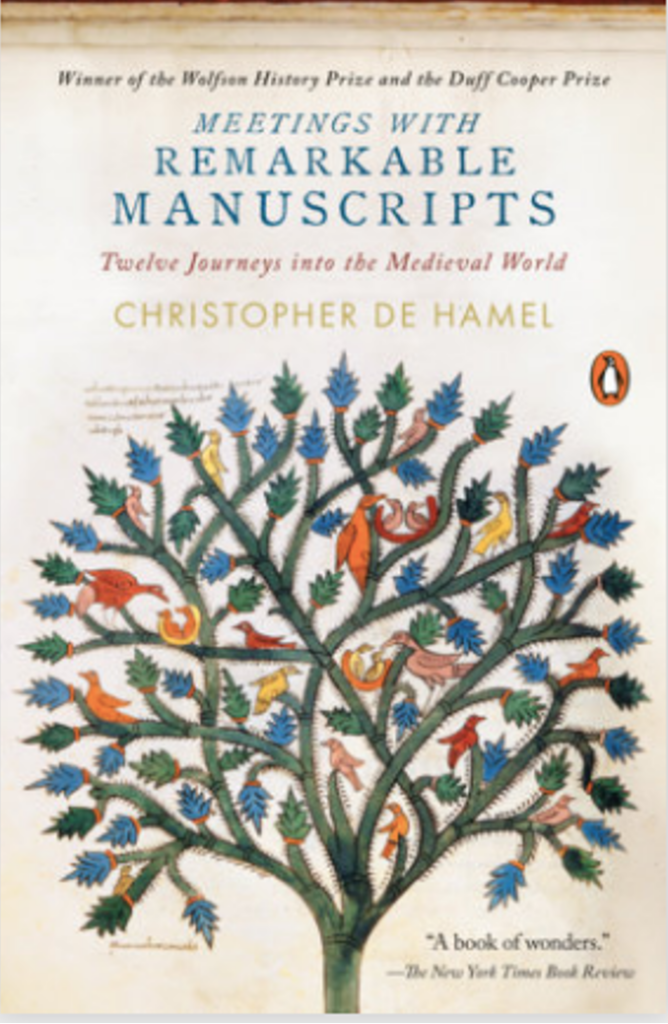Alumni Spotlight: Addie Fleron
From Medieval Studies to Management Consulting

Last spring, we reached out to Global Medieval Studies alumni who have gone on to interesting careers in teaching, law, academia, information science, university administration, and finance, among other career pathways.
Today we introduce Addie Fleron (College ’16), who wrote a thesis on Arthurian literature and now works for McKinsey and Company.

Gillian: Is there a Medieval Studies course or professor you particularly remember, and why? Did you focus on any area or topic within medieval studies?
Addie: I focused on Western Europe and mostly the high middle ages. My thesis was on the changing portrayals of knighthood in Arthurian literature from the tenth century through the twelfth century, culminating in the works of Chrétien de Troyes.
One of my favorite professors was Fr. David Collins. I took several of his classes and also completed an independent study in Medieval Latin. Working with Fr. Collins was a phenomenal experience because he really pushed all of his students to think critically about the primary source material that we were reading and what it could tell us about the cultural and political developments of the time.
Gillian: Once students are back in DC, are there any cool museums or other resources related to Medieval Studies that you’d recommend?
Addie: Dumbarton Oaks, which has excellent Byzantine and Pre-Columbian collections as well as beautiful gardens and is only a 15-minute walk from Georgetown. I also highly recommend the Met Cloisters for students in or visiting NYC.
Gillian: Where have you worked since leaving Georgetown, and what is your current role like?
Addie: I’m a management consultant at McKinsey and Company and spend most of my time working with healthcare companies. I’m an engagement manager, which means I manage project teams on the ground at the client, often working really closely with 4-6 colleagues as well as a client team.
Gillian: How did your major in Medieval Studies help you in your career? Has it shaped how you see the world, or how you approach problems?
Addie: While the content of my education and the content of the work I do now are very different (I often joke with clients that they don’t want to carry forward much medieval healthcare knowledge!), the critical thinking and problem-solving skills that I developed throughout my time at Georgetown are critical to my success today. The medieval period is fascinating to study because we will never have a full picture based on contemporary information: rather, we must understand and hypothesize from various different types of sources (contemporary writings, later writings such as chronicles, art, architecture, and more) what actually happened and more interestingly, why.
I use these same skills in my work today: based on the limited data we have, why are customer satisfaction rates low, or why are phone calls taking much longer than they took at this time last year? What could we do about it?
Gillian: Do you have any advice for those considering (or currently completing) a major or minor in Global Medieval Studies? What would you say to students who are interested in the field, but are worried or unsure about career prospects?
Addie: Georgetown has a fantastic reputation and is a leading liberal arts university. The most important thing that it teaches you is how to think creatively and address various types of problems. These are critical 21st century skills. Most college students today will see the economy and nature of jobs change many times throughout the course of their careers. Flexibility, adaptability, and critical thinking will help us evolve and learn throughout this transition.
Gillian: Who are your favorite medieval authors, thinkers, and/or artists? Are there any books, podcasts, websites, movies, etc., you’d like to recommend to students?
Addie: I highly recommend reading the works of Chrétien de Troyes (though I may be somewhat biased, as I spent several months with them!). For modern scholarship, Meetings with Remarkable Manuscripts is a must read and beautifully illustrated.


